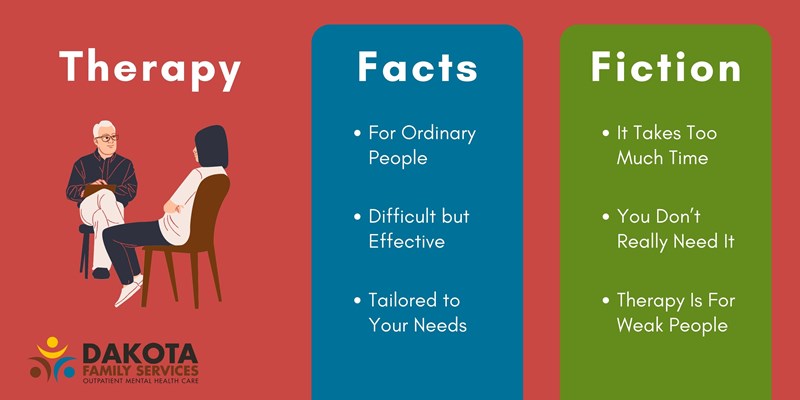Unlocking the Keys of Mental Wellness: An Overview of Therapy and Therapy Options
Psychological health is a complicated and essential facet of general health. Various therapy and treatment choices exist to attend to numerous emotional difficulties. Each strategy uses one-of-a-kind benefits and techniques tailored to private requirements. Comprehending these choices is crucial for anyone looking for to improve their psychological health and wellness. Couples Therapy. What elements should one think about when exploring these opportunities? The answer may expose a path to a much healthier emotion
Understanding Mental Health and Its Significance
Psychological health and wellness includes the psychological, mental, and social wellness of individuals, considerably influencing exactly how they believe, feel, and act. Its value can not be overemphasized, as it affects every aspect of life, including connections, job efficiency, and overall lifestyle. Individuals with great psychological health have a tendency to handle stress better, keep healthier relationships, and make informed choices. On the other hand, poor psychological health and wellness can bring about emotional distress, damaged functioning, and different psychological disorders, which may call for expert treatment. Comprehending psychological health is crucial for acknowledging the signs of distress and the requirement for support. Understanding also promotes compassion and minimizes preconception, motivating people to seek assistance when required. By prioritizing psychological health and wellness, communities can cultivate environments that sustain psychological well-being, eventually bring about much healthier, a lot more durable individuals. This structure offers as a vital action toward efficient psychological health therapy and treatment options.
Types of Therapy Approaches
Counseling approaches vary extensively, each customized to meet the distinct needs of people looking for assistance. Amongst one of the most common kinds are cognitive-behavioral treatment (CBT), which concentrates on recognizing and transforming adverse idea patterns, and person-centered therapy, which highlights compassion and acceptance. Psychodynamic treatment explores past experiences and subconscious procedures to understand existing habits, while solution-focused short treatment aims to identify services rather than examine problems.Additionally, family treatment addresses relational dynamics and interaction within households, fostering healthier interactions. Group counseling supplies a communal space for participants to share experiences and support each other. Other techniques consist of existential treatment, which encourages individuals to find definition and purpose, and art or music treatment, which uses creative expression as a therapeutic device. Each method uses unique methods and philosophies, allowing clients to locate one of the most ideal technique for their individual development and recovery journeys.
Discovering Different Therapy Techniques
In the domain of psychological health counseling, different therapy techniques provide distinctive methods to therapy. Cognitive Behavior Treatment emphasizes the link in between actions and thoughts, while Psychodynamic Therapy checks out subconscious impacts on emotional well-being. Furthermore, Mindfulness-Based Methods advertise present-moment recognition as a way to boost psychological policy and total mental wellness.
Cognitive Behavioral Therapy
Cognitive Behavioral Treatment (CBT) stands apart as one of one of the most extensively exercised and looked into modalities in psychological wellness treatment. This method concentrates on the interconnection between sensations, actions, and ideas, emphasizing that altering negative idea patterns can lead to boosted psychological well-being and behavior adjustments. CBT is structured, commonly involving a limited variety of sessions, and aims to outfit individuals with practical skills to handle their symptoms. It works for a variety of problems, consisting of stress and anxiety problems, depression, and trauma. By utilizing strategies such as cognitive restructuring and direct exposure therapy, CBT cultivates durability and equips clients to challenge challenges head-on, making it a valuable choice in the landscape of psychological wellness treatments.
Psychodynamic Treatment Strategies
Psychodynamic therapy strategies offer a deep expedition of the unconscious mind and its impact on habits and psychological well-being. Rooted in Freudian concept, these methods stress the value of early childhood experiences and subconscious conflicts. Through strategies such as totally free association, dream evaluation, and transference, individuals obtain understanding into their thoughts and feelings, cultivating self-awareness and understanding. This therapeutic modality urges customers to reveal quelched feelings and unsettled issues, which can be critical in attending to current psychological obstacles. By taking a look at the interaction in between present actions and past experiences, psychodynamic therapy aims to advertise psychological healing and individual development. Eventually, it gives a framework for individuals to discover complex inner dynamics that affect their mental health.

Mindfulness-Based Methods
While traditional treatments commonly focus on previous experiences, mindfulness-based methods focus on present-moment recognition as a path to emotional well-being. These approaches, consisting of mindfulness-based cognitive therapy (MBCT) and mindfulness-based anxiety decrease (MBSR), encourage individuals to involve completely with their thoughts and feelings without judgment. Experts discover to observe their mental states, fostering a greater understanding of psychological triggers and actions. This method not just relieves symptoms of anxiety and clinical depression however also boosts general psychological resilience. By integrating mindfulness exercises, such as reflection and deep breathing, customers cultivate a sense of tranquility and clearness. Eventually, mindfulness-based methods encourage individuals to browse life's challenges with enhanced awareness and approval, promoting a healthier connection with their feelings and thoughts.
The Function of a Specialist or Therapist
A knowledgeable specialist or counselor plays a crucial function in sustaining individuals with their mental health and wellness trips. They provide a safe, non-judgmental space where customers can express their ideas and feelings honestly. Mental Health Resources. By employing different therapeutic techniques customized to each person's requirements, therapists aid clients check out underlying issues that may add to their psychological health and wellness challenges.Therapists offer support and devices to manage stress, anxiousness, depression, and other emotional troubles. Their training outfits them to identify patterns in habits and thought procedures, facilitating insights that cause personal growth. They additionally cultivate a strong restorative partnership, which is crucial for successful outcomes.Moreover, specialists continue to be fully commited to confidentiality and moral requirements, making certain a relying on atmosphere. Inevitably, the role of a therapist or therapist is to empower people, motivating them to create strength and much healthier coping strategies while guiding through life's intricacies
Just how to Select the Right Counseling or Treatment Alternative
Selecting the right therapy or treatment choice begins with examining private demands. It is necessary to understand personal obstacles and objectives before discovering numerous therapy styles. This fundamental step can substantially influence the performance of the chosen technique.
Analyze Your Requirements

How can people successfully analyze their psychological wellness requires when reviewing counseling or treatment alternatives? Initially, they ought to review their mood and identify details concerns, such as partnership, clinical depression, or stress and anxiety challenges. Journaling can be a helpful tool for tracking ideas and feelings in time. Additionally, people may benefit from seeking feedback from relied on friends or relative regarding regarded modifications in behavior or state of mind. It is also valuable to review individual goals for therapy, such as improving coping abilities or acquiring insight into personal patterns. Finally, researching numerous counseling methods and their viability for details requirements can aid in making an enlightened choice. Ultimately, self-awareness plays a pivotal function in choosing the right course for psychological health support.
Explore Therapy Styles
While passing through the diverse landscape of therapy alternatives, people must consider different styles of counseling to discover the finest suitable for their distinct needs. Cognitive Behavior go to my blog Modification (CBT) concentrates on changing negative idea patterns, while Psychodynamic Therapy discovers subconscious processes and previous experiences. Humanistic techniques highlight personal development and self-actualization, promoting a helpful environment. Additionally, mindfulness-based therapies grow present-moment recognition, aiding psychological law. For those looking for framework, Solution-Focused Brief right here Therapy targets certain objectives and options. Group therapy provides a communal setup for common experiences and assistance. Inevitably, individuals ought to assess their choices, convenience degrees, and certain obstacles, guaranteeing they select a restorative style that reverberates with their individual trip toward psychological wellness.
Getting Rid Of Obstacles to Looking For Help

The Benefits of Therapy and Treatment for Mental Wellness
Looking for assistance for mental health and wellness difficulties can cause significant renovations in overall wellness. Therapy and treatment offer individuals with a safe area to discover their thoughts and feelings, fostering self-awareness and individual growth. These expert services gear up customers with dealing approaches and problem-solving skills customized to their distinct situations.Moreover, treatment can decrease signs and symptoms of anxiety, depression, and various other psychological health conditions, enhancing emotional strength. Regular sessions advertise accountability and encourage people to set and accomplish individual goals. Through different healing techniques, such as cognitive-behavioral therapy or mindfulness methods, clients learn to reframe unfavorable thoughts and develop much healthier behaviors.Additionally, the restorative partnership itself can be a resource of assistance, aiding to fight seclusion and isolation. On the whole, engaging in therapy and treatment is an aggressive action toward attaining mental wellness, making it possible for individuals to lead more satisfying lives.
Often Asked Questions
For How Long Does Counseling or Treatment Generally Last?
The period of counseling or treatment differs considerably, commonly lasting from a couple of sessions to a number of months or years. Aspects influencing this consist of the person's details requirements, the kind of treatment, and healing goals.
What Should I Anticipate Throughout My First Session?
During the very first session, people can anticipate an introduction, conversation of problems, and the specialist's approach. They might finish evaluations and develop goals, cultivating a safe setting for open communication and structure rapport.
:max_bytes(150000):strip_icc()/GettyImages-554392669-56a6c32d3df78cf7728feb74.jpg)
Exist Any Type Of Threats Related To Treatment?
Therapy can entail threats, such as psychological pain, vulnerability, or challenging painful memories. While these obstacles may arise, they can likewise result in personal growth and healing, making the healing process facility yet potentially satisfying.
Exactly How Can I Tell if My Therapist Is an Excellent Fit?
Identifying if a specialist is a great fit involves examining convenience, interaction style, and healing approach. Positive relationship and progression in the direction of objectives are indicators of an ideal match, important for effective psychological health assistance.
Will My Insurance Coverage Cover Counseling or Therapy Sessions?
Establishing insurance policy protection for therapy or therapy sessions frequently calls for calling the insurance coverage company directly. Policies differ substantially, so people additional resources must validate advantages, co-pays, and any type of required pre-approvals before going after treatment solutions. Amongst the most typical types are cognitive-behavioral therapy (CBT), which focuses on recognizing and transforming adverse thought patterns, and person-centered treatment, which stresses empathy and acceptance. Psychodynamic therapy explores unconscious procedures and previous experiences to understand existing behavior, while solution-focused quick therapy intends to determine solutions instead than check out problems.Additionally, household treatment addresses relational dynamics and interaction within households, cultivating much healthier interactions. Other strategies include existential treatment, which motivates individuals to discover definition and objective, and art or music therapy, which utilizes innovative expression as a healing tool. Cognitive Behavior Therapy emphasizes the connection in between ideas and behaviors, while Psychodynamic Therapy discovers unconscious impacts on psychological wellness. Cognitive Behavior Treatment (CBT) concentrates on transforming unfavorable thought patterns, while Psychodynamic Therapy checks out subconscious processes and past experiences.
Comments on “Your Ultimate Guide to Finding and Using Mental Health Resources Near You”